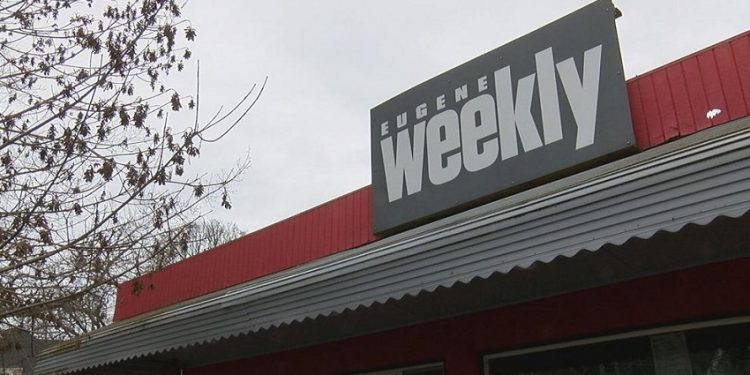EUGENE, Ore. — A woman accused of embezzling hundreds of thousands of dollars from the Eugene Weekly, a local newspaper, was released from custody in Ohio after the Oregon governor’s office declined to pay for her extradition.
Elisha Young, 38, was arrested earlier this month in Whitehall, Ohio, following a traffic stop. She faced five felony charges related to allegations that she stole money while serving as the Eugene Weekly’s business manager. The newspaper first revealed the theft in late 2023, reporting that it nearly forced the publication to shut down and left the paper with over $100,000 in debt.
Despite Young’s arrest, the Oregon governor’s office, led by Governor Tina Kotek, refused to fund her transport back to Oregon. The Eugene Weekly said it was not notified of Young’s release and only learned about it after contacting the jail in Ohio directly.
Camilla Mortensen, editor-in-chief of the Eugene Weekly, expressed deep frustration with the decision. “You don’t just lose money. There’s an emotional component to that, and a sense of betrayal. It’s important to have someone face consequences and ensure there is a record of the crime to prevent further harm,” Mortensen said.
Governor Kotek’s office issued a statement calling the theft “unacceptable” but explained that each extradition request is evaluated individually. The statement noted that Oregon’s limited financial resources mean the state cannot cover every extradition. Additionally, the governor’s office said it generally approves extraditions only when the shuttle transport system can be used—a method available only among certain “true shuttle states” including Idaho, Montana, Oregon, and Washington.
Responsibility for pursuing extradition now falls to the Lane County District Attorney’s Office. However, the office has indicated it lacks the budget to bring Young from Ohio to Oregon.
Lane County District Attorney Chris Parosa criticized the governor’s refusal to pay for the extradition. “From a public policy standpoint, it’s not a good message for the state to suggest that if you flee far enough, you won’t be brought to justice,” Parosa said.
Parosa also highlighted a broader trend of the governor’s office denying more extraditions, shifting the financial burden to local governments. With many cities facing budget shortfalls, he said covering these costs is increasingly difficult.














